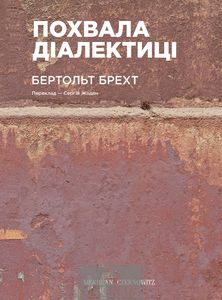This book contains 60 poems by Bertolt Brecht & ndash; a great poet and playwright, revolutionary, reformer, anti-fascist, born in Kaiser's Germany, gained infamous fame on the theatrical stages of the Weimar Republic, was expelled from Hitler's regime, changed countries for a decade and a half, and at the end of his extremely difficult and officially troubled life recognized classic and laureate in socialist Germany, which many can still not forgive him.
Poems Brecht began to write early (and immediately bright), wrote many of them (the complete collection contains more than 2300 texts), wrote to the latter. His poetic legacy, as in the case of many great poets, quite accurately reproduces the immediate "life path": it is just as complex and turbulent. Therefore, a few remarks should be made from the beginning.
First of all, this collection should not be considered & laquo; the best & raquo; poems by Brecht. After all, what is the best here? What's worse? This & ndash; how to choose the best birds in a colorful and noisy flock of birds bursting from the attic of the station. The pack enchants with itself: its movement, its strength and & ndash; first of all & ndash; its noise. In the case of Brecht's poetry, it is important to understand not only the text but also the context. Reading this collection, you will notice how heterogeneous (and ambiguous) are the works contained in it. Which is quite natural: Brecht wrote classical sonnets, zongs for guitar singing, texts for the theater stage, which had to perform their dramatic task, not always obvious beyond the plot twists and turns and psychology of the characters. He also wrote political & nbsp; poetic pamphlets, appeals, manifestos (even & quot; Communist Manifesto & quot; rewritten in hexameter, but it is not here, do not look). He also wrote paradoxical piercing verlibriums. And, of course, quite academic rhyming ballads. He also easily resorted to stylizations and free borrowings & ndash; both genre and purely stylistic. He also admired the East, which was especially reflected in his later poems. He also had the ability to turn & nbsp; into poetry everything that came to his eyes, so his poetry often resembles fragmentary, ragged, spontaneous diary entries. And what they remind us of: they are often like that. In short, the purpose of this collection of translations was to show & ndash; at least dashed, contoured, fleeting & ndash; all this immeasurability of ideas, plans and methods, all the Brechtian vastness of searches and interests, themes and characters, favorite means and the most iconic characters. That's why it's not so much a collection of "the best" as "the most diverse" of Brecht's poems.
(From the foreword by Serhiy Zhadan & nbsp; & laquo; Poor BB & raquo;)
Photos from the personal archive of Serhiy Zhadan, as well as his drawing by Bertolt Brecht.

























